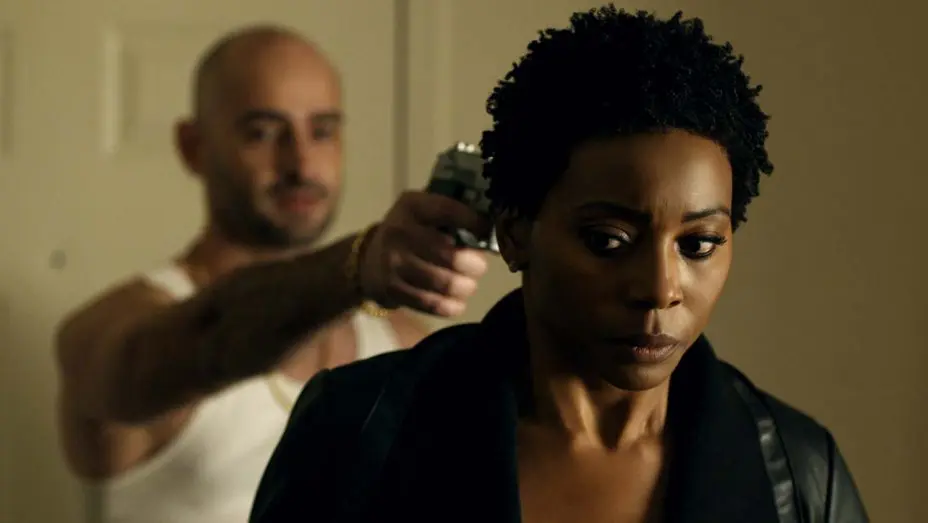Summary
Skin in the Game is a modest attempt to relay a story about human trafficking, but the choice of direction leaves the story impactless.
There’s little happiness in Skin in the Game, a film that bases itself on real events. And there’s an inevitable reality that attaches itself to the writing that life is bleak in some parts of the world. We pass by small communities every day, but we are not confident what lies beneath. Skin in the Game is a story about a young girl called Dani (Elisabeth Harnois), who after getting caught up in a whirlwind romance online, quickly realises she has fallen for a human-trafficking ring.
The environment is constructed so the audience understands the cogs of sex-trafficking. Lena (Erica Ash) is our eyes, an ex-prostitute who spends nights dangerously rescuing girls from temperamental pimps. Lena is a complicated character; it’s clear she has a past with human trafficking, and her knowledge of how the system works is frightening more than resourceful. Skin in the Game inadvertently offers a tour guide of prostitute spots.
The film gives us some intimate insight for a woman who was once abused in a sex-trafficking ring. We are introduced to a particular character that is recovering in Lena’s house – a young woman that has fallen for her pimp and continuously returns. It’s about clothes, money and plenty of attention. Skin in the Game understands grooming and abuse at a systematic level.
Once the story is settled, Skin in the Game couples up Lena and Dani’s mother Sharon (Elisabeth Harnois) in a quest to infiltrate the trafficking ring to save the girl. Scene to scene it battens down a map of different people to speak to, and hints to where Dani’s owner is residing.
Skin in the Game is too on the surface. It blatantly places villains as the forefront of the story, and reduces the emotions of the situation, offering little sympathy from the audience. You appreciate the tragedy of the story, but the narrative focuses more on the dramatics of their ordeal than the reality of their human situation. There’s a scene in particular when Sharon breaks down crying, but the story muddied through various plot points up until this point, making scenes disengaging.
Skin in the Game refuses to explain the broken community that trafficking exists in. It plays down the horrors of becoming a victim to a trafficking ring, dumbing down key moments to keep it as level as possible, but then it does not work in its favour – Skin in the Game becomes the generic drama thriller with nothing new to be offered.
Skin in the Game is worth your time, but it is not as deep or well-thought out as it suggests. While it raises awareness, the lack of impact is troubling.




